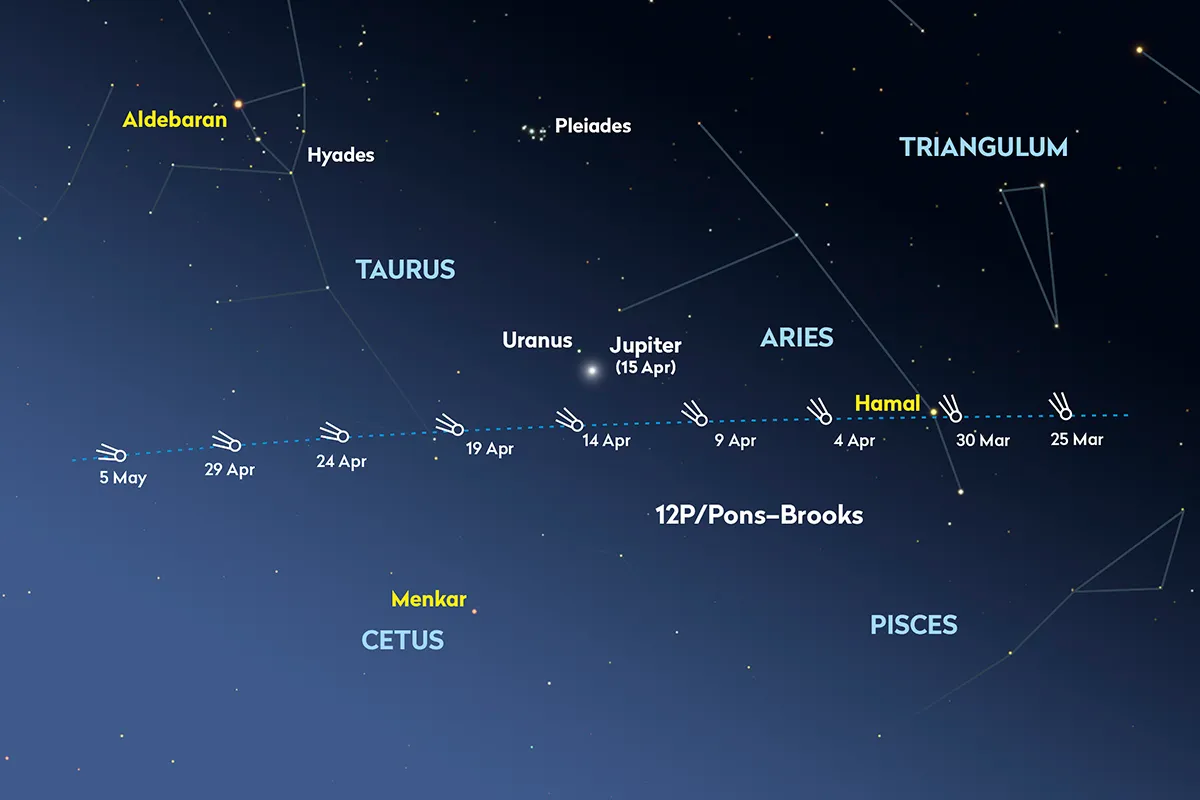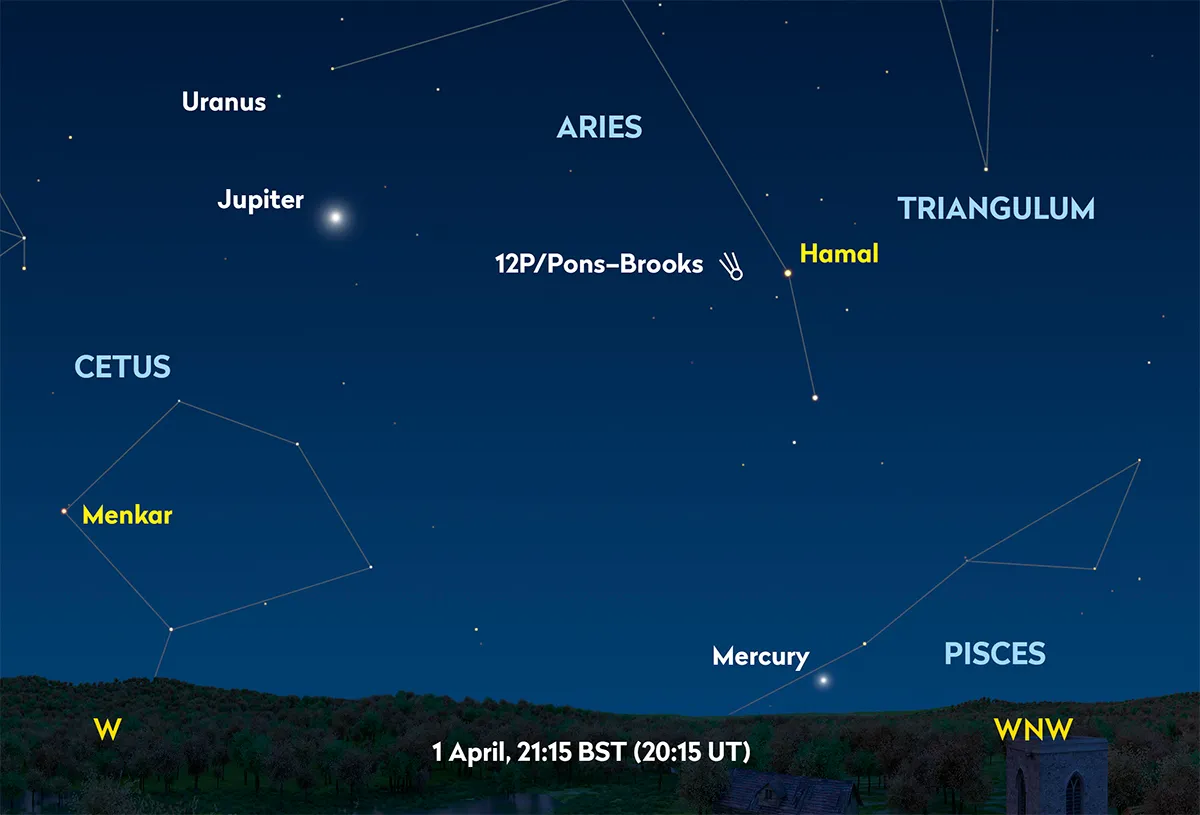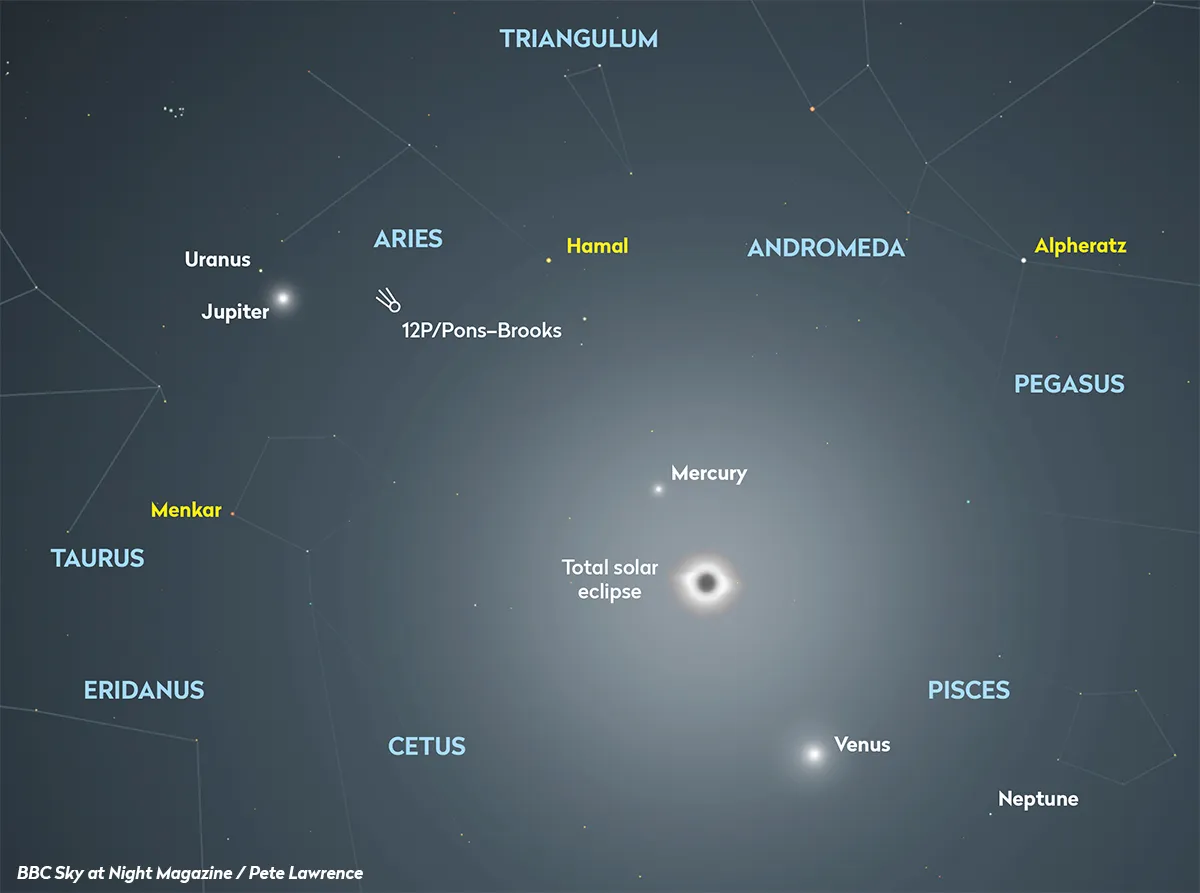If you've been observing Comet 12P/Pons-Brooks this year and are based in North America, you could be in for a treat come April 8 as the comet appears in the sky next to the total solar eclipse.
Comet 12P/Pons-Brooks has been attracting a lot of attention in March and April 2024, with the hope that it could reach naked-eye brightness.
As well as a potential 'photobomb' during the April 8 total solar eclipse, Comet Pons-Brooks will also appear to approach then pass below Jupiter, currently one of the brightest planets in the sky.

Pons-Brooks and Jupiter
On 1 April, the comet and gas giant are about 13˚ apart, but by the time the sky has darkened they will be low down, meaning you'll need a clear horizon.
Pons–Brooks should brighten as it gets closer to Jupiter in the sky, and it's a pity this close encounter isn't happening at a higher position, under darker conditions.
But both comet and planet will still be worth looking out for. Look low in the northwest and make sure you have an open horizon.

Again, that brightening spring sky will make this tricky, but if Comet Pons-Brooks undergoes an outburst we could be in for a treat.
And if the comet has developed a tail by this point, that may be visible, poking up from behind the horizon.
Comet Pons-Brooks and the April 8 eclipse

On Monday, observers in North America watching the total solar eclipse might be in for a very rare treat indeed.
As the Moon totally covers the Sun and day briefly becomes night, several planets will pop into view.
To the lower right of the eclipsed Sun, Venus will be a mag. –3.9 lantern, and to its lower right, closer to the southwest horizon, Saturn and Mars will both be first magnitude, shining close together like a bright double star.
Meanwhile, to the upper left, Jupiter will be shining at mag. –2, and close to the eclipse will be Comet Pons–Brooks.

If it has reached fifth magnitude by that day, the comet could be visible to the naked eye as a misty smudge to the upper left of the eclipsed Sun.
Observers on the line of totality will have almost 4.5 minutes to look for it before the Moon moves away and daylight floods the sky.
Remember, even if the comet and planets are naked-eye visible, a partially eclipsed Sun should not be observed with the naked eye, as doing so could damage your eyesight.
For more info, read our guide on how to safely observe a solar eclipse. And if you want to know whether you will be on the path of totality, take a look at our April 8 eclipse path map.
Have you observed Comet Pons-Brooks and/or the April 8 eclipse? Let us know by emailing contactus@skyatnightmagazine.com

